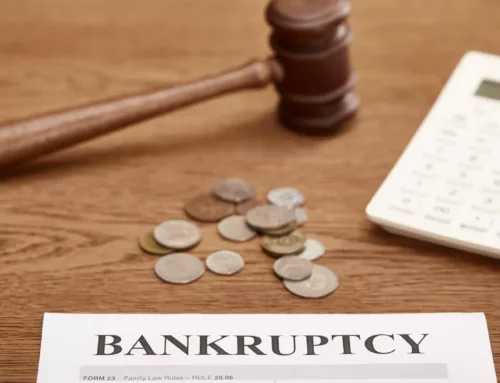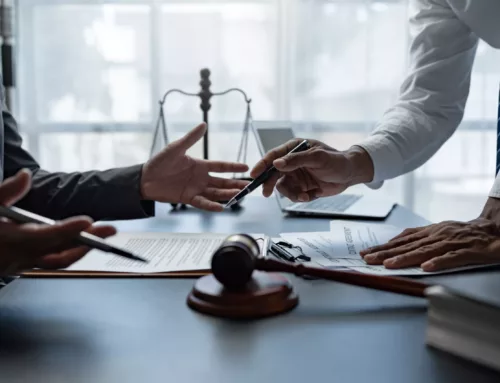What You Should Know About Asset Protection
Can a debt collector take my car in Royal Oak, MI? If you’ve missed car loan payments, you might worry about your creditors taking your car.
Understanding the mechanisms behind creditor actions can provide clarity and peace of mind.
Quick Summary:
- Secured loan delinquency can lead to your car being repossessed by the creditor, following legal procedures.
- Creditors can only repossess collateral used for secured loans, but unsecured debts may lead to lawsuits and liens on your car.
- As a debtor, you have rights including fair treatment, due process, dispute claims, claiming exemptions to protect assets, negotiation, and bankruptcy protection.
What is Repossession?
Repossession refers to the legal process where a creditor takes back an item you borrowed, usually a car. That is because you haven’t made your loan payments. Repossession happens because secured loans, like car loans, use the car as collateral. Collateral is security for the loan. If you don’t repay the debt, the lender can repossess the car to recoup their losses.
Creditors must follow specific legal requirements when repossessing property. These requirements include providing advance notice to the borrower and avoiding breaching the peace.
Borrowers may have options to redeem the repossessed property. They can do this by paying off the debt or negotiating new terms with the creditor.
Can a Debt Collector Take My Car?
Whether a debt collector can take your car depends on the type of debt and the laws in your area. In general, only assets that were used as collateral for a secured loan can be repossessed.
Secured Loans
These loans use a specific asset as security for the debt. If you don’t repay the loan, the lender can repossess that asset. Common examples include:
- Car Loans: If your car is used as collateral for a loan (like a car loan or title loan) and you fall behind on payments, the lender can repossess the car without a court order.
- Title Loans: Like car loans, the vehicle’s title serves as collateral.
- Home Equity Loans/Lines of Credit: In some cases, these loans use your home’s equity as collateral. Repossession wouldn’t happen directly. The lender would start foreclosure proceedings, which is a lengthier legal process.
Unsecured Loans
These loans don’t involve collateral. Examples include credit card debt, medical bills, or personal loans. Creditors cannot directly repossess your assets for unsecured debts.
However, they can sue you in court. If they win a judgment, they can place a lien on your assets (including your car) to force a sale and recover the debt.
Note that there are often exemptions for essential items like a car, up to a certain value.
What are My Legal Rights in This Situation?
As a debtor facing the prospect of a judgment lien or repossession, you have several rights designed to protect you and your property. Here are some key rights you should be aware of:
Right to Fair Treatment
You have the right to be treated fairly and respectfully by creditors and collection agencies. Harassment, threats, or abusive tactics are prohibited by law. You have the right to report any violations to the appropriate authorities.
Right to Due Process
You have the right to be notified of any legal action taken against you. This includes lawsuits filed by creditors seeking judgment liens or repossession. You also have the right to defend yourself in court and present evidence on your behalf.
Right to Dispute
If you believe that a judgment or claim against you is inaccurate or unjust, you have the right to dispute it. This may involve challenging the validity of the debt, questioning the creditor’s evidence, or asserting legal defenses.
Right to Exemptions
Exemptions exist that protect property from seizure or attachment by creditors. These exemptions include a primary residence, household goods, clothing, and tools of the trade. You have the right to claim these exemptions to safeguard essential assets.
Right to Negotiate
You have the right to negotiate with creditors to settle debts or establish alternative payments. That may involve:
- Proposing a lump-sum settlement
- Renegotiating the terms of the debt
- Setting up a repayment plan that fits your financial circumstances
Right to Bankruptcy Protection
If you are in debt and cannot reach a satisfactory resolution with creditors, you have the right to seek bankruptcy protection. Filing for bankruptcy can halt collection actions, including repossession and judgment liens. That provides a fresh start by discharging certain debts or restructuring repayment obligations.
Contact Our Car Possession Lawyers Today!
Have you ever asked the question “Can a debt collector take my car?” Our attorneys have an answer for you! Debt collection issues can be difficult, but you don’t have to face them alone. Hammerschmidt Stickradt & Associates in Royal Oak, MI, is here to help.
We understand the complexities of Michigan debt collection laws and can provide the legal guidance you need to protect your car and other assets. Contact our bankruptcy law firm today to schedule a free consultation!



